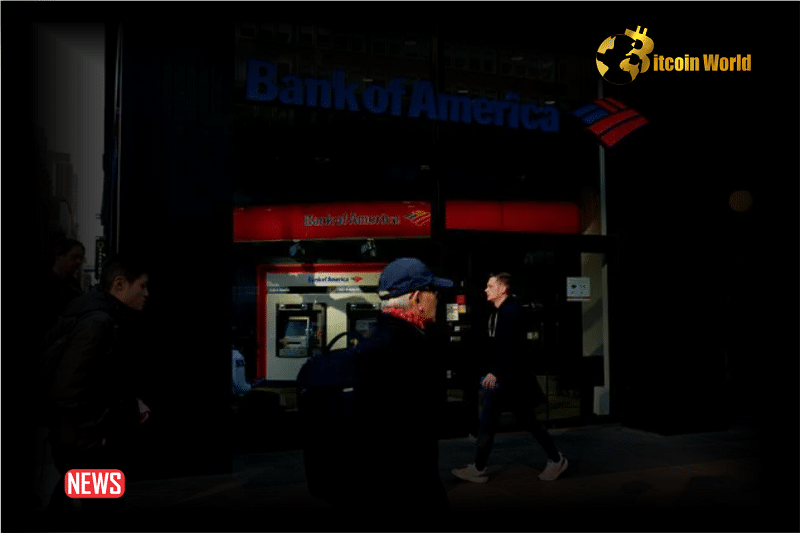Big banks aren’t immune to regulatory scrutiny, and Bank of America (BofA), one of the nation’s largest financial institutions, is learning that lesson once again. The Consumer Financial Protection Bureau (CFPB) has just slapped BofA with a hefty $12 million fine. Why? For repeatedly sending false information to federal regulators. Let’s dive into what happened and what it means for you.
What Did Bank of America Do?
The CFPB isn’t just throwing fines around for fun. In this case, the agency says Bank of America routinely violated the Home Mortgage Disclosure Act (HMDA). You might be thinking, ‘HMDA? What’s that?’ Don’t worry, we’ll break it down:
- HMDA: Your Consumer Protection Shield: Enacted way back in 1975, HMDA is designed to protect consumers from discriminatory and predatory practices in the mortgage market. Think of it as a watchdog for home loans.
- Data is Key: HMDA requires lenders to keep records and report data about mortgage applications and originations to the CFPB. This data helps regulators spot trends and potential red flags in lending practices.
- Demographics Matter: A crucial part of HMDA is collecting demographic information from mortgage applicants. This includes things like race, ethnicity, and gender. Why? To ensure fair lending and prevent discrimination.
The Alleged Violation: Falsifying Data on a Massive Scale
Here’s where Bank of America ran into trouble. The CFPB alleges that hundreds of BofA loan officers simply skipped a crucial step: asking mortgage applicants for their demographic information. Instead of following up to get this required data, they reportedly took a shortcut that raised serious eyebrows.
Imagine this scenario:
Over a three-month period, instead of properly collecting demographic data, BofA loan officers allegedly:
- Falsely Reported ‘Opt-Outs’: They marked down that 100% of mortgage applicants chose not to provide their demographic data. Yes, you read that right, 100%!
- Ignored Red Flags: This is statistically improbable and should have immediately raised alarms within Bank of America.
- Failed to Ensure Accuracy: The CFPB says BofA didn’t have proper systems in place to ensure loan officers were actually collecting accurate data, and had been aware of this issue since as early as 2013 but seemingly overlooked it.
Essentially, instead of admitting they weren’t collecting the data, they allegedly fabricated a reason, making it appear as if every single applicant declined to provide this information. This is a major breach of regulatory requirements.
See Also: Hong Kong, Singapore Attract Increasing Crypto VC Funding
The Regulator’s Response: “This is Illegal”
CFPB Director Rohit Chopra didn’t mince words when describing Bank of America’s actions:
“Bank of America violated a federal law that thousands of mortgage lenders have routinely followed for decades. It is illegal to report false information to federal regulators, and we will be taking additional steps to ensure that Bank of America stops breaking the law.”
This statement highlights the severity of the situation. It’s not just a minor paperwork error; it’s a deliberate misrepresentation of data, undermining the purpose of HMDA and potentially hindering efforts to identify and combat discriminatory lending practices.
What’s Next for Bank of America?
Beyond the $12 million fine, the CFPB isn’t just letting BofA off the hook. The agency is also requiring Bank of America to take significant corrective actions, including:
- Overhauling Data Collection Practices: BofA will need to implement robust systems and training to ensure accurate and compliant data collection going forward.
- Independent Review: The CFPB will likely require independent audits to verify that BofA’s new systems are effective and being followed correctly.
- Potential Further Scrutiny: This incident could lead to increased scrutiny of Bank of America’s overall compliance practices by the CFPB and other regulatory bodies.
Why Does This Matter to You?
You might be wondering, ‘Why should I care about Bank of America’s data reporting issues?’ Here’s why it’s relevant to consumers:
- Transparency and Accountability: Regulatory actions like this ensure that even large institutions are held accountable for following the law and being transparent in their operations.
- Fair Lending Practices: HMDA data is crucial for identifying and addressing potential discrimination in lending. When data is falsified, it weakens the ability to ensure fair access to credit for everyone.
- Consumer Trust: Incidents like this can erode trust in the financial system. It’s important for regulators to act decisively to maintain public confidence.
In Conclusion: Regulations Matter
The Bank of America fine serves as a stark reminder that regulatory compliance is not optional, even for the biggest players in the financial industry. The CFPB’s action underscores the importance of HMDA and the need for accurate data reporting to protect consumers and ensure fair lending practices. While $12 million might seem like a drop in the bucket for a bank the size of Bank of America, the reputational damage and the required corrective actions send a clear message: falsifying regulatory data will not be tolerated.
Disclaimer: The information provided is not trading advice, Bitcoinworld.co.in holds no liability for any investments made based on the information provided on this page. We strongly recommend independent research and/or consultation with a qualified professional before making any investment decisions.




